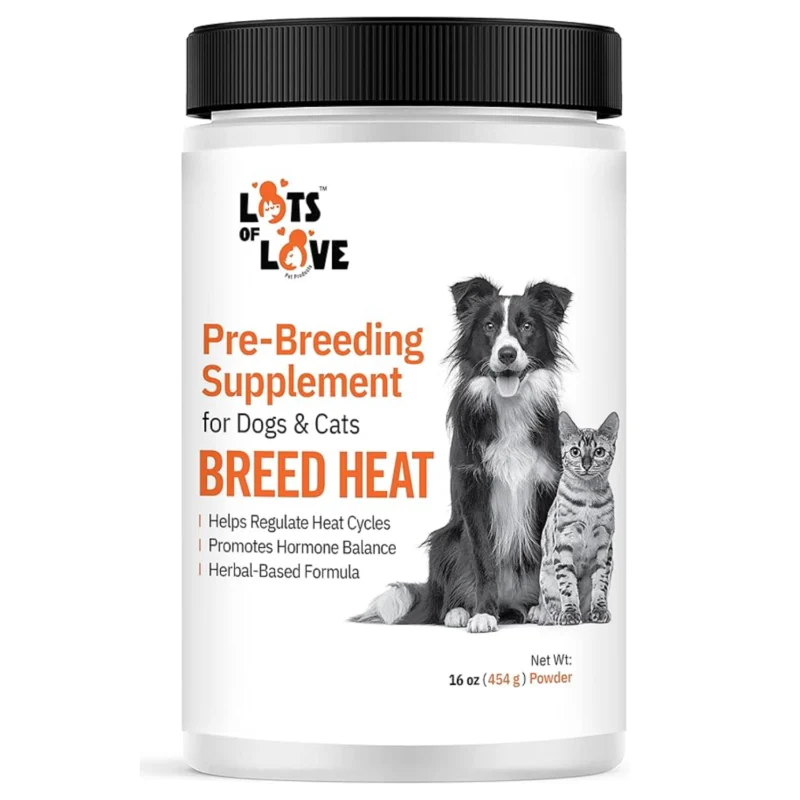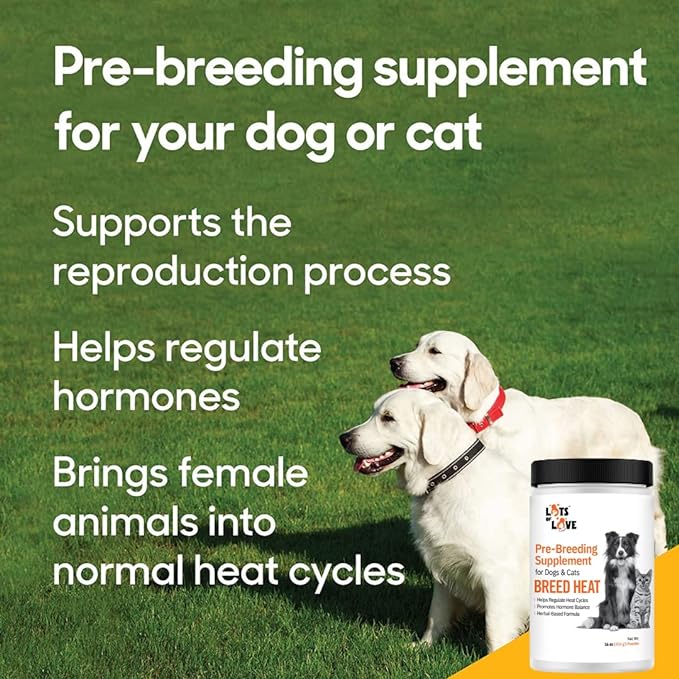Most female dogs go into heat, or experience estrus, for the first time when they are about 6 months old. Heat cycles in female dogs usually last between 2 to 3 weeks with symptoms including a swollen vulva, bloody vaginal discharge, and more frequent urination.
After their first heat cycle, dogs come into heat an average of twice a year or about every 6 months. However, this interval can vary between breeds and from dog to dog. Some dogs may come into heat 4 times a year, while others come into heat only once a year. In younger dogs, it is common to have irregular heat cycles. It may take a year or two for a dog's cycle to become regular.
Irregular Heat Cycles & Abnormal Heat Cycles
Although most dogs experience their heat cycle at regular intervals after their cycles begin, sometimes dogs experience abnormal cycling. Abnormal heat in dogs can include silent, absent, split, or irregular cycles.
Irregular heat cycles are often an indication that the ovaries are not functioning properly. When this is the case, abnormal hormone levels are typically responsible for a failure to trigger regular heat cycles. Abnormal heat cycles are an important cause of infertility in female dogs.
Irregular heat cycles can be caused by malnutrition, hormonal imbalances, genetic disorders, ovarian tumors, infections, diseases, and other health problems. If your female dog is experiencing irregular heat cycles, it’s best to consult your veterinarian, as the heat cycle can be disrupted by a variety of health issues.
Silent Heat
Silent heat occurs when a person is unable to detect a heat cycle because the dog doesn’t exhibit the normal signs of a heat cycle. During a silent heat, the dog still goes into heat and can become pregnant. In most cases, male dogs are capable of detecting silent heat. Your vet can confirm a silent heat cycle by performing vaginal secretion and blood tests.
Absent Heat
Absent heat refers to a dog that does not come into heat and completely misses a cycle. Sometimes dogs suddenly stop cycling, even though they had cycled regularly before. Although this can be common in younger females that haven’t reached puberty yet, it shouldn’t happen in mature females that have cycled normally before. Absent heat can be caused by reproductive system diseases, a medication that interferes with fertility, malnutrition, or poor health.
Persistent Estrus
Persistent estrus (or prolonged heat in dogs) occurs when a dog goes into heat and stays in the estrus stage for more than 21 days. A book by Risvanli et al., Abnormalities in the Sexual Cycle of Bitches, points out that ovulation is absent at the end of this long period. There are a variety of causes of persistent estrus, including hormonally active ovarian cysts, ovarian tumors, and exposure to exogenous hormones. Some other causes include:
Uterine Disorders: Conditions such as pyometra (a severe uterine infection) or other uterine abnormalities can influence the estrus cycle.
Hypothyroidism: An underactive thyroid gland can affect the reproductive hormones and lead to persistent estrus.
Anovulatory Heat: This occurs when the dog’s body goes through the heat cycle without ovulating, leading to prolonged estrus.
Testicular Tumors: In rare cases, testicular tumors (if the dog has retained testicles or is a male dog) can produce hormones that affect the estrus cycle.
Sexual Maturity Issues: Incomplete or irregular maturation of the reproductive system can result in abnormal estrus cycles.
Incomplete Spaying: In cases where spaying was incomplete or improperly performed, residual ovarian tissue might still produce hormones, leading to persistent estrus.
Split Heat
Split heat occurs when the heat cycle begins, but then it stops before the second stage (estrus) begins. Dogs will typically come into heat again within 3 to 4 weeks and experience a normal cycle. This is a common issue in younger dogs during their first heat, in which case the issue usually resolves on its own. Continuous or frequent split heats can be caused by hypothyroidism.
In addition to the heat cycle abnormalities listed above, some female dogs may cycle too often or not often enough, also known as shortened interestrus interval and prolonged interestrus interval.
What You Can Do
If your dog is experiencing irregular heat cycles, here are some steps you can take to help identify the issue and hopefully regulate her cycles:
- Consult your veterinarian: First, you should consult with your veterinarian to identify any health issues that may be causing irregular heat cycles. Your vet will probably run a variety of tests and come up with a treatment plan to resolve any underlying health issues.
- Get annual checkups: Regular checkups will give your vet the chance to catch any underlying problems that may develop.
- Make nutrition a priority: Malnourished females have a harder time cycling, so ensuring your female dog is receiving adequate nutrition is essential.
- Consider using a reproductive supplement: Your veterinarian may recommend a supplement that will help regulate your female’s cycle.
Breed Heat by Lots of Love Pet Products
At Lots of Love Pet Products, we are aware that irregular heat cycles happen and that they can be perplexing and frustrating. That’s where Breed Heat from Lots of Love Pet Products comes in.
Breed Heat is an herbal-based supplement designed to help regulate hormones and bring female dogs into normal heat cycles. The liver-flavored formula contains a variety of ingredients that help support the reproductive health of female dogs as they prepare for breeding.
Kelp is a highly nutritious supplement that is rich in macronutrients and micronutrients for the support of overall health.
From dog breeding to pregnancy and whelping, Lots of Love Pet Products has solutions for every need along the way. Our committed, passionate professionals can equip you with the knowledge and tools you need to help ensure a healthy stud, momma, and litter. Contact us today with any questions!
Buy this amazing product today!

 DOG HEALTH SUPPLEMENTS
DOG HEALTH SUPPLEMENTS DOG DIGESTIVE SUPPLEMENTS
DOG DIGESTIVE SUPPLEMENTS EYE & EAR DROPS
EYE & EAR DROPS SKIN & COAT SUPPLEMENTS
SKIN & COAT SUPPLEMENTS CAT SUPPLEMENTS
CAT SUPPLEMENTS

